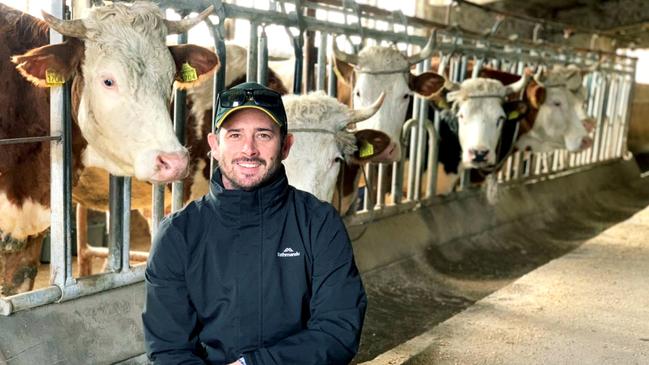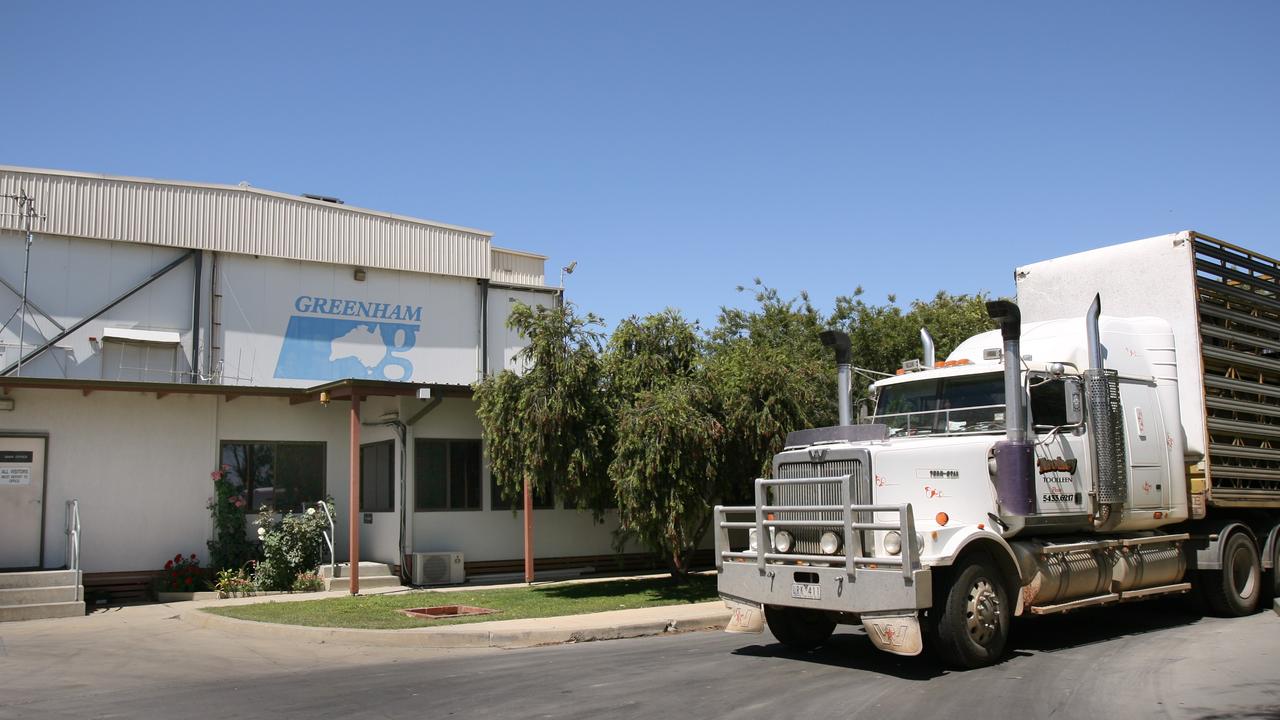Animal welfare actions raise productivity, sustainability
Australia must recognise the change in consumer attitudes and learn to thrive within it, says Thomas Green, the manager of one of the country’s biggest feedlots.

LIVESTOCK producers should be proud of what they do but not be ignorant to changing expectations and preferences of consumers.
That’s according to the general manager of one of Australia’s biggest feedlots who said the industry must be open to change “while still striving to produce a quality product in an efficient manner”.
Thomas Green, the general manager of Thomas Foods International’s 20,000-head capacity Iranda feedlot at Tintinara in South Australia, recently completed a prestigious Nuffield scholarship on animal welfare and bridging the gap from producer to consumer.
He said globally, livestock producers showed a high level of care and skill when raising animals and this skill, in combination with new technologies, had seen rapid increases in production efficiencies in developed countries.
He said however, this had now resulted in the non-agricultural public questioning the ethics of the livestock production industry.
In his scholarship report, released this month, Thomas focused on animal welfare in livestock production with a specific concentration on the beef feedlot industry.
He said with animal welfare “an emotive and subjective topic” he hoped his report “could inform the reader and give confidence to be part of the conversation surrounding livestock production and animal welfare”.
Thomas, who was named 2017 Australian Lot Feeders’ Association Young Lot Feeder of the Year, said his scholarship travels — which took him to Europe, North and South America and Africa — he discovered there were “vast differences globally regarding animal-welfare standards, with main drivers being government legislation, wealth, culture and religion”.
He said animal welfare was largely misunderstood with many accompanying misconceptions, including the association of large-scale livestock production with poor animal-welfare standards.
MISGUIDED IMAGE
THOMAS said livestock producers in developed countries were increasingly removed from the end consumer due to complex supply chains designed to extract as much financial value as possible that “allows little room for transparency between producer and consumer”.
He said livestock producers and peak bodies had been seen to be defensive and reactive to claims of poor animal welfare in recent years “making the agricultural sector appear that they have something to hide”.
“Livestock production also plays a critical and underestimated role on soil health and carbon sequestration.
“Given their importance, livestock producers have a responsibility to care for animals in a transparent and sustainable matter, in line with stakeholder shared values.”
“Livestock production is crucial globally and should be celebrated as producing nutrient-dense protein with micronutrients essential to human health,” Thomas said.
Thomas said over the past five years there has been growing commentary and concern regarding animal welfare in intensive agriculture.
He said while he was respectful of other opinions and understood the difficulties in telling the story of intensive agriculture, in recent years he found himself being challenged by the intensity and personal nature of groups against livestock production.
Thomas said his studies had given him a global understanding of how important animal production is for many reasons, including environmental sustainability, combating human malnutrition, and maintaining religion and culture.
“As well as this, it has shown me that Australia has strong animal welfare standards but certainly has room to improve in practice and principle,” he said.
BETTER SUPPORT
THOMAS said as with all industries “the agricultural sector will always be governed and judged by its consumers” and in general the non-agricultural public was more concerned than ever with how their food is grown and could access such information quickly.
He said the red meat sector had recognised this with increasingly consumer support through positive animal-welfare outcomes and environmental sustainability being at the heart of industry direction and strategy but even with intentions “the industry has struggled to keep abreast of public concern and has been consistently forced to defend current practice rather than spending resources on industry improvements and positive messaging to the consumer base”.
“The feedlot industry has been recognised for being a leader among Australian agriculture regarding proactive quality assurance programs and producer engagement, but it needs to recognise that the industry is only as sustainable as the entire supply chain,” he said.
“Traditionally, each section of the red-meat industry has been primarily concerned with protecting itself rather than understanding the role they play in the bigger picture of maintaining a sustainable supply chain.
“Whether it be a dairy farmer, northern pastoralist, grain feeder or processor there is a need for compromise and an understanding that full consensus is difficult to achieve.
“Are producers too proud and stubborn not to recognise that it is a changing world and change is needed with that?”
Thomas said global demand for nutrient-dense meat protein would continue to grow, driven by an increasing middle class and global population growth.
And he said the Australian red-meat industry was well positioned to flourish with the general population’s support if it took action to work with consumers instead of attempting to educate with facts and figures.
MORE
MEAT AND LIVESTOCK AUSTRALIA: BOARD RE-ELECTED AT AGM
NUFFIELD SCHOLARSHIP FOCUS ON ANIMAL WELFARE AND PROFITABILITY



